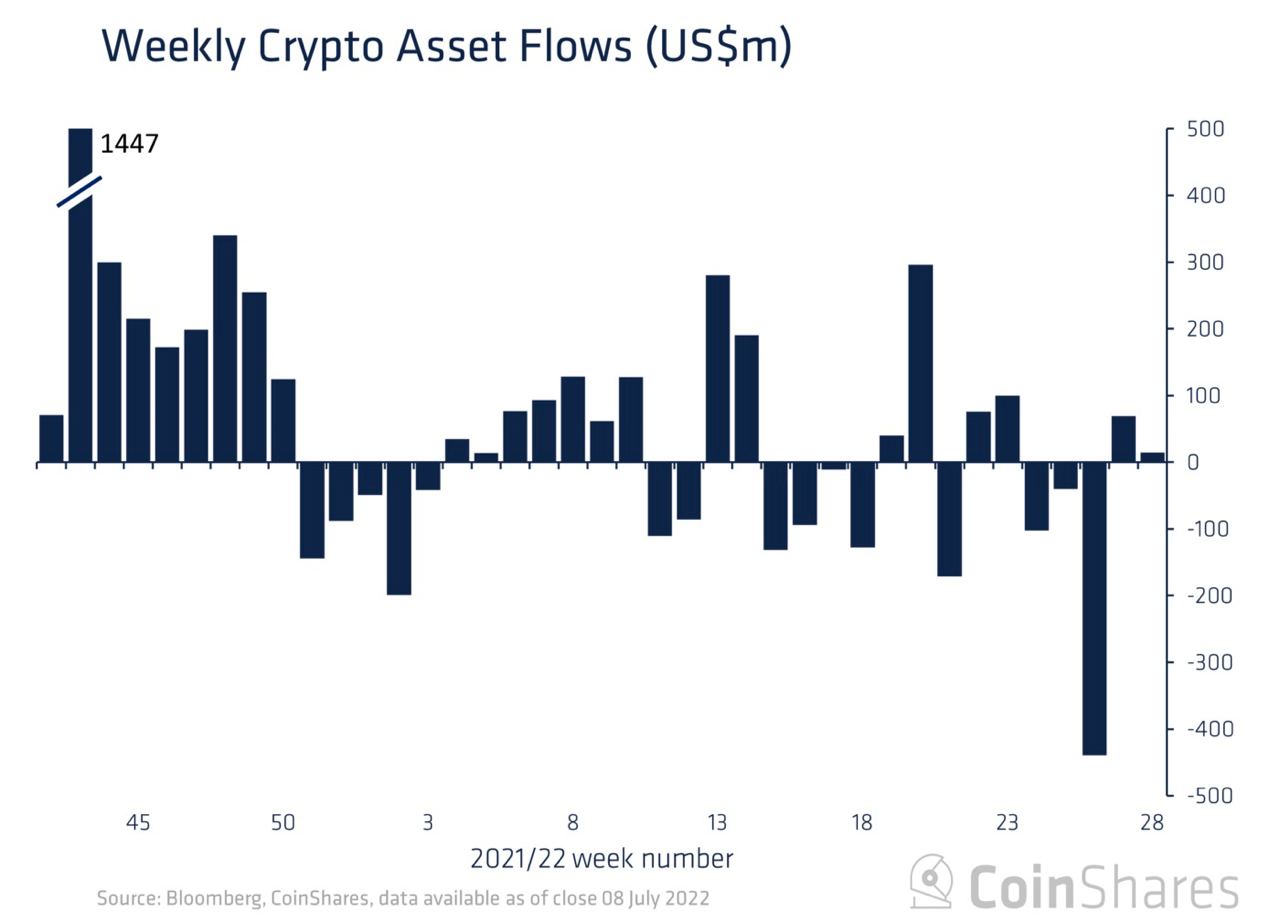
Disclaimer: The opinions expressed by our writers are their own and do not represent the views of U.Today. The financial and market information provided on U.Today is intended for informational purposes only. U.Today is not liable for any financial losses incurred while trading cryptocurrencies. Conduct your own research by contacting financial experts before making any investment decisions. We believe that all content is accurate as of the date of publication, but certain offers mentioned may no longer be available.
This week might be more important for crypto than some traders and investors think as global financial markets are getting ready for June CPI data release. Another unexpectedly high round of inflation data will most likely affect Bitcoin and large L1 blockchains in a negative way, like we saw previously.
CPI data effect on Bitcoin
The unexpectedly high inflation data urged the Fed to step up its inflation control game and push the key rate to 0.75%, which caused an immediate 10% crash of BTC's price following the 23% retrace caused by the aforementioned CPI data.
If inflation data would be higher than expected this week, we are likely to see the similar effect on the cryptocurrency market. Considering the remaining pressure from the U.S. dollar, which is still rallying against other foreign currencies, Bitcoin is unlikely to show any positive movements on the market unless we see an unexpectedly positive CPI release.
Bitcoin's failed reversal
According to the daily chart of BTC, we can clearly see that the reversal attempt the first cryptocurrency took in the last week has failed as it retraced back below the $21,000 price range and is now struggling at around $20,500.
The main reason behind the failed reversal attempt is the lack of inflows and trading volume on the market. The institutional inflows data suggests that funds and companies are not rushing to buy more Bitcoin, as the macro-environment on the digital assets market remains alienated after the 75% crash.
Compared to the last week, when institutional investors grabbed around $65 million worth of cryptocurrencies, this week's data suggest that only $15 million worth of digital assets had been acquired by investors.

The aforementioned inflation data and the U.S. dollar rally are key factors pushing institutions away from purchasing more digital assets and fueling a potential recovery rally.
Ethereum, Cardano and others take a hit
The lack of inflows into Bitcoin affects alternative coins like Ethereum and Cardano that are losing around 10% of their value in the last two days.
In the case of Ethereum, we are still seeing enormous selling pressure on the market as exchanges like FTX offer considerably high interest for anyone willing to give their ETH to fund the positions of short sellers.
Additionally, Celsius sent around $50 million worth of coins on different exchanges to be able to cover some of their loans. Following the massive liquidation volume of Three Arrows Capital and other institutional investors, Ethereum took a massive 45% loss.
The digital assets industry today remains highly dependent from inflation expectations, rate hikes and other factors that were not previously tied to the cryptocurrency market in any way. The institutional adoption we saw in 2021 tied the industry to traditional financial markets that are still showing no signs of recovery to this day.


 Dan Burgin
Dan Burgin Vladislav Sopov
Vladislav Sopov